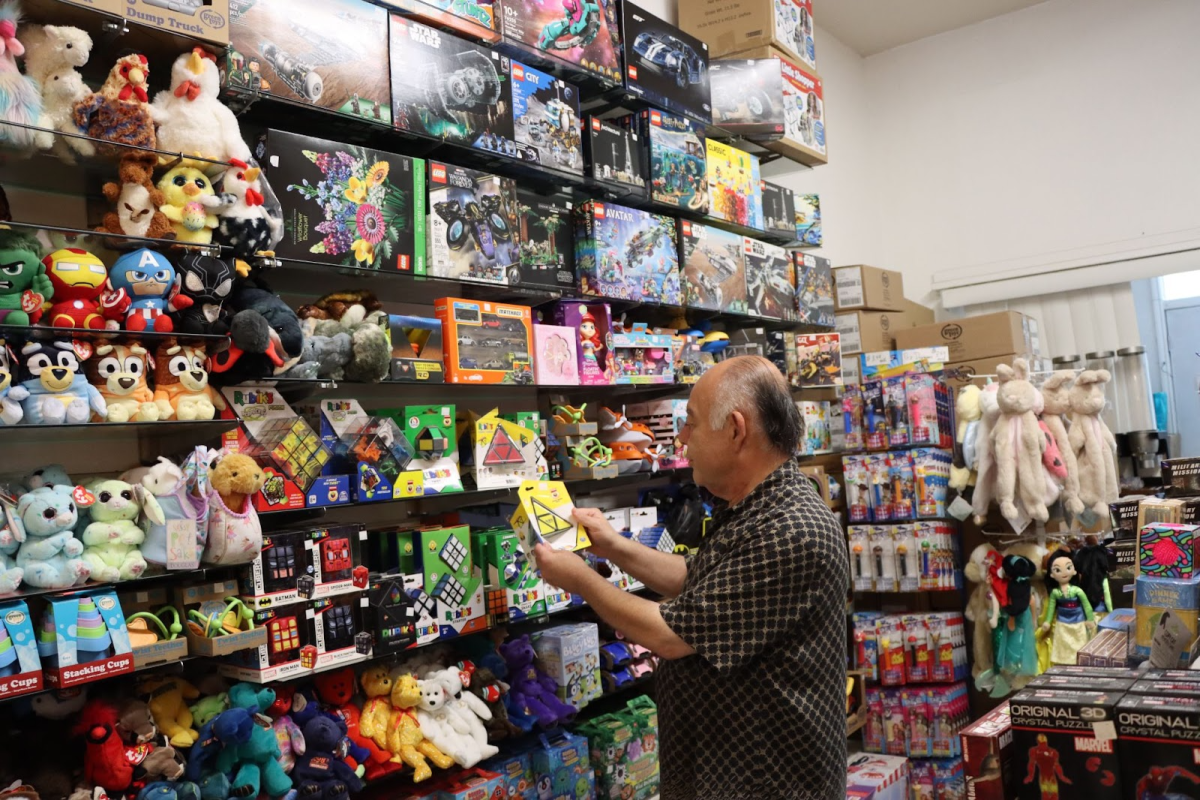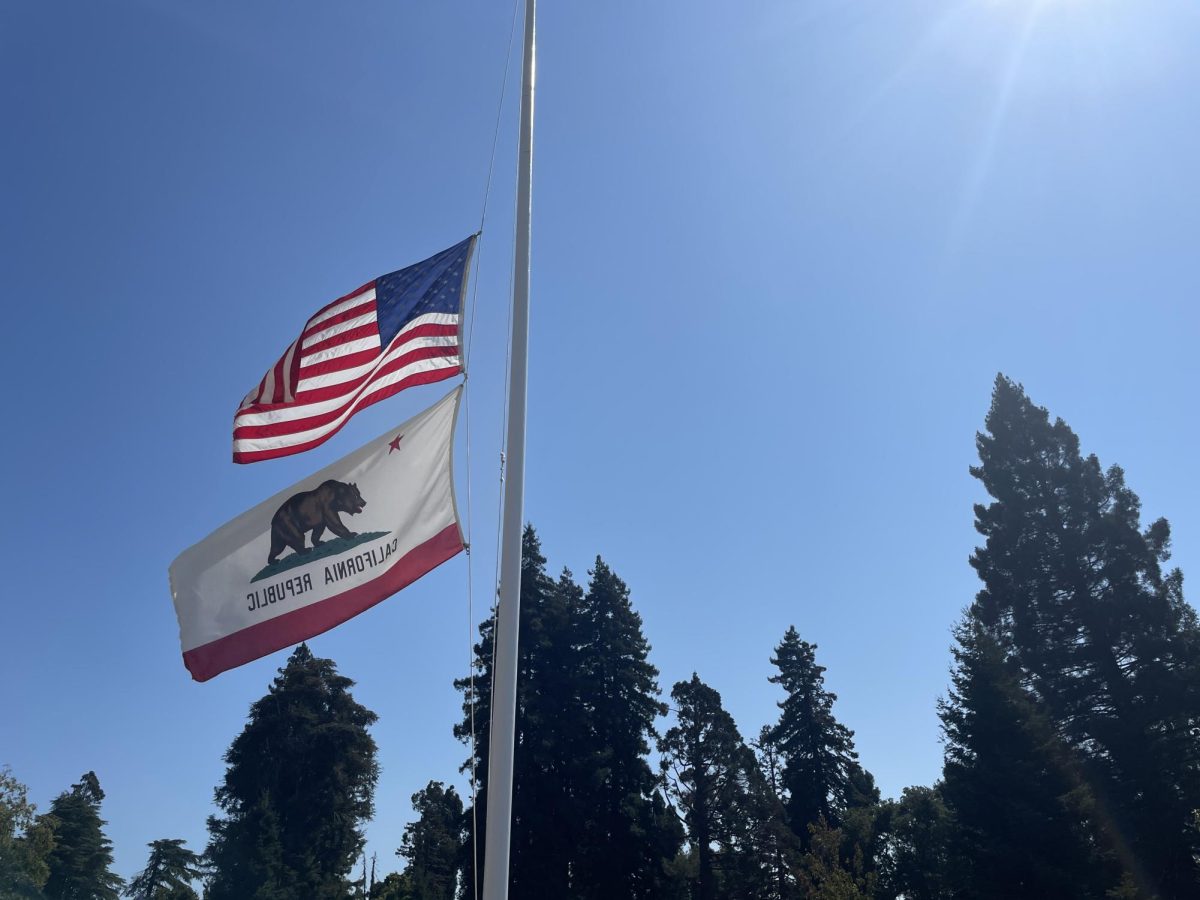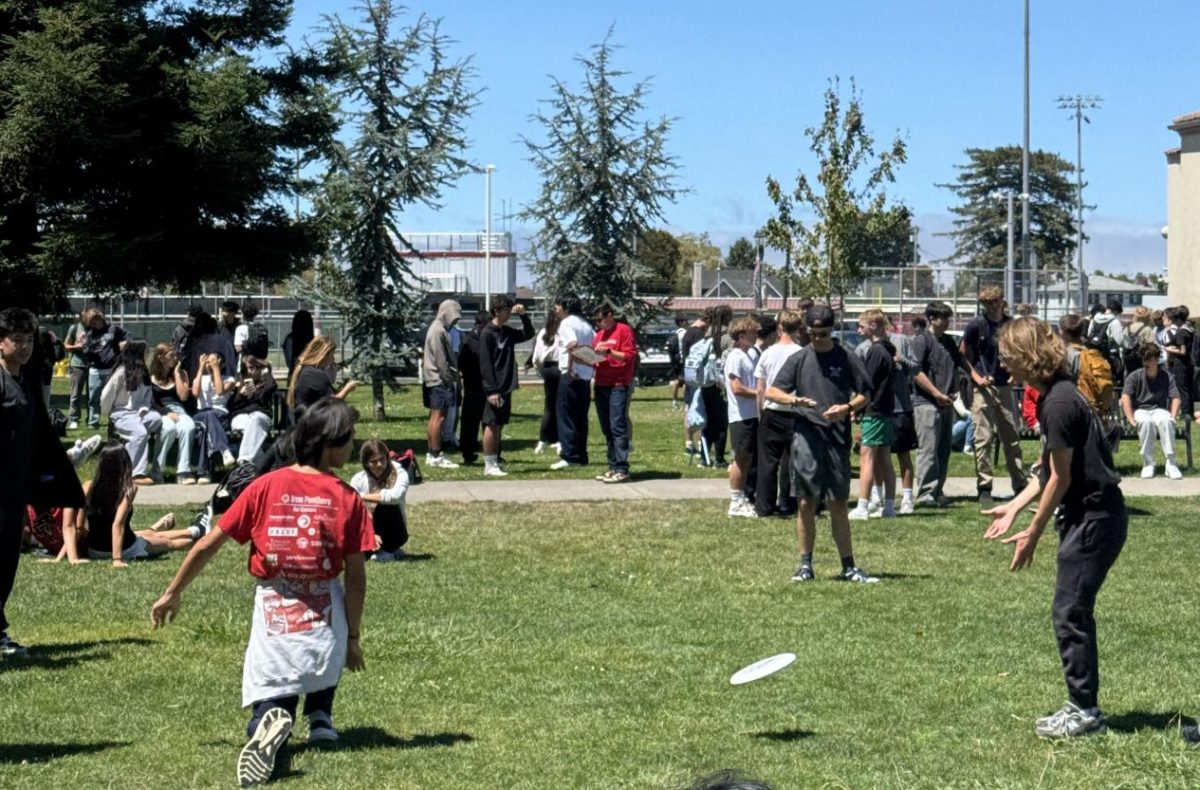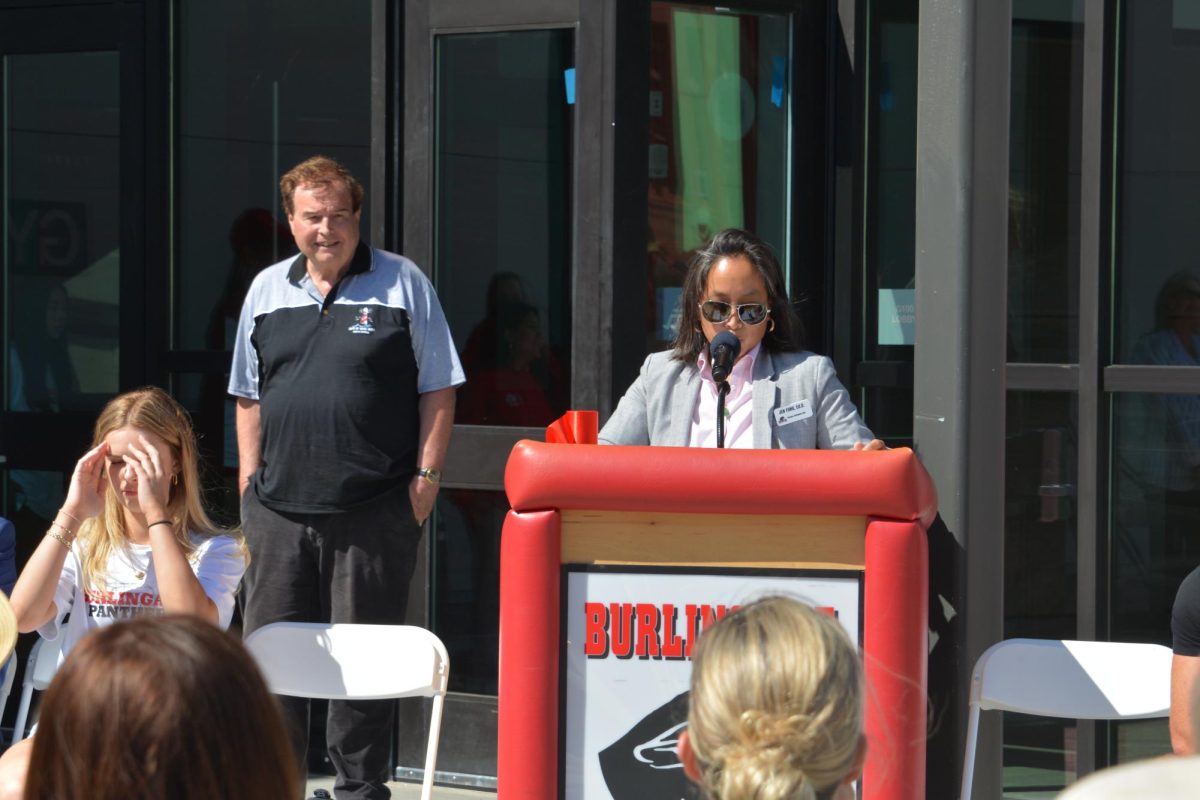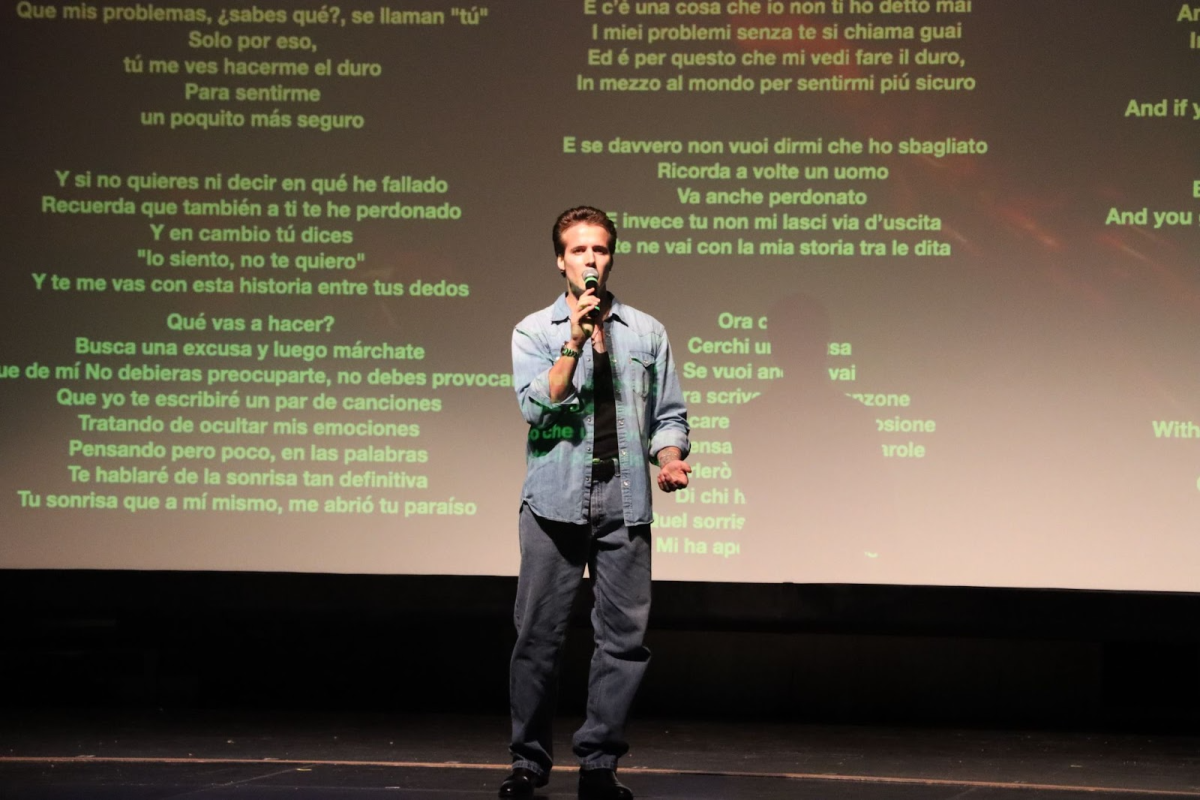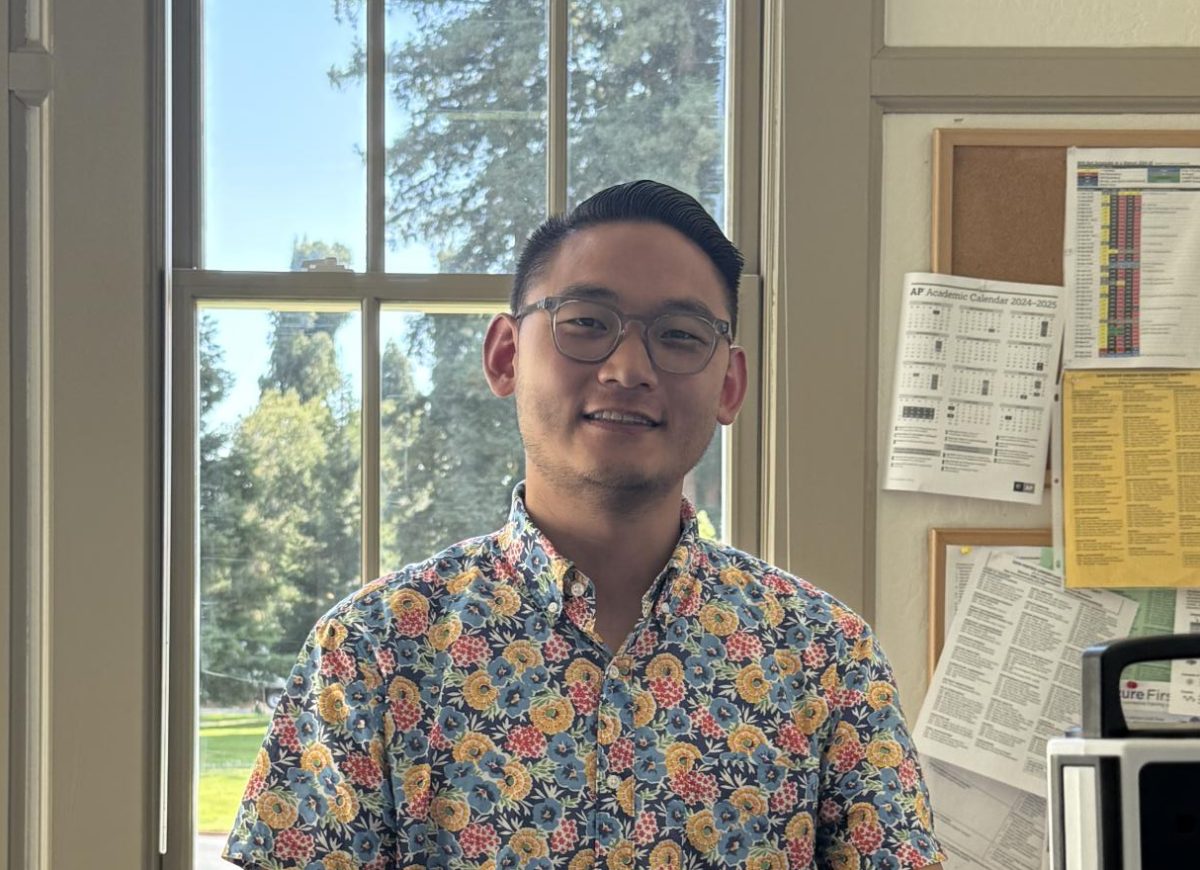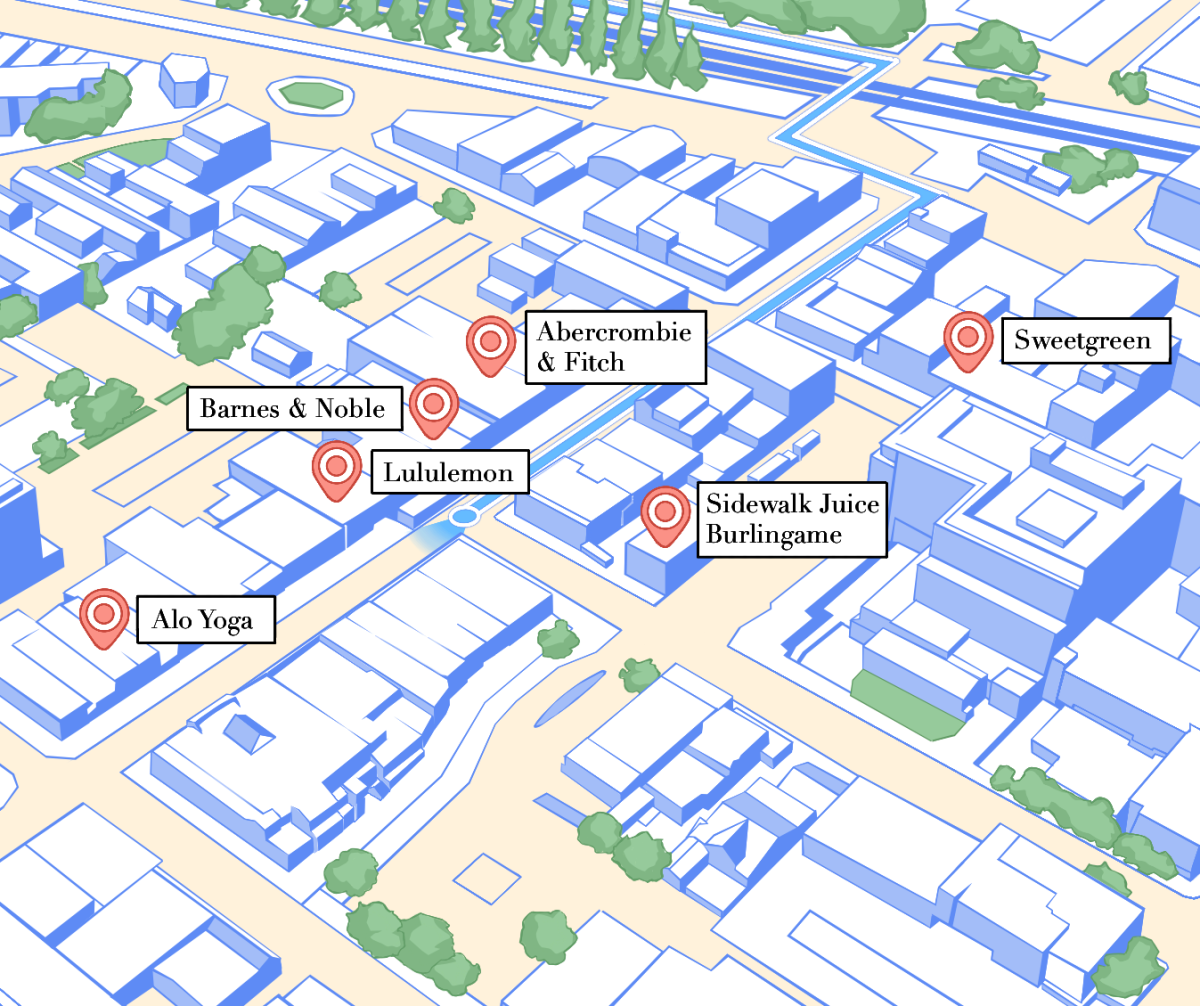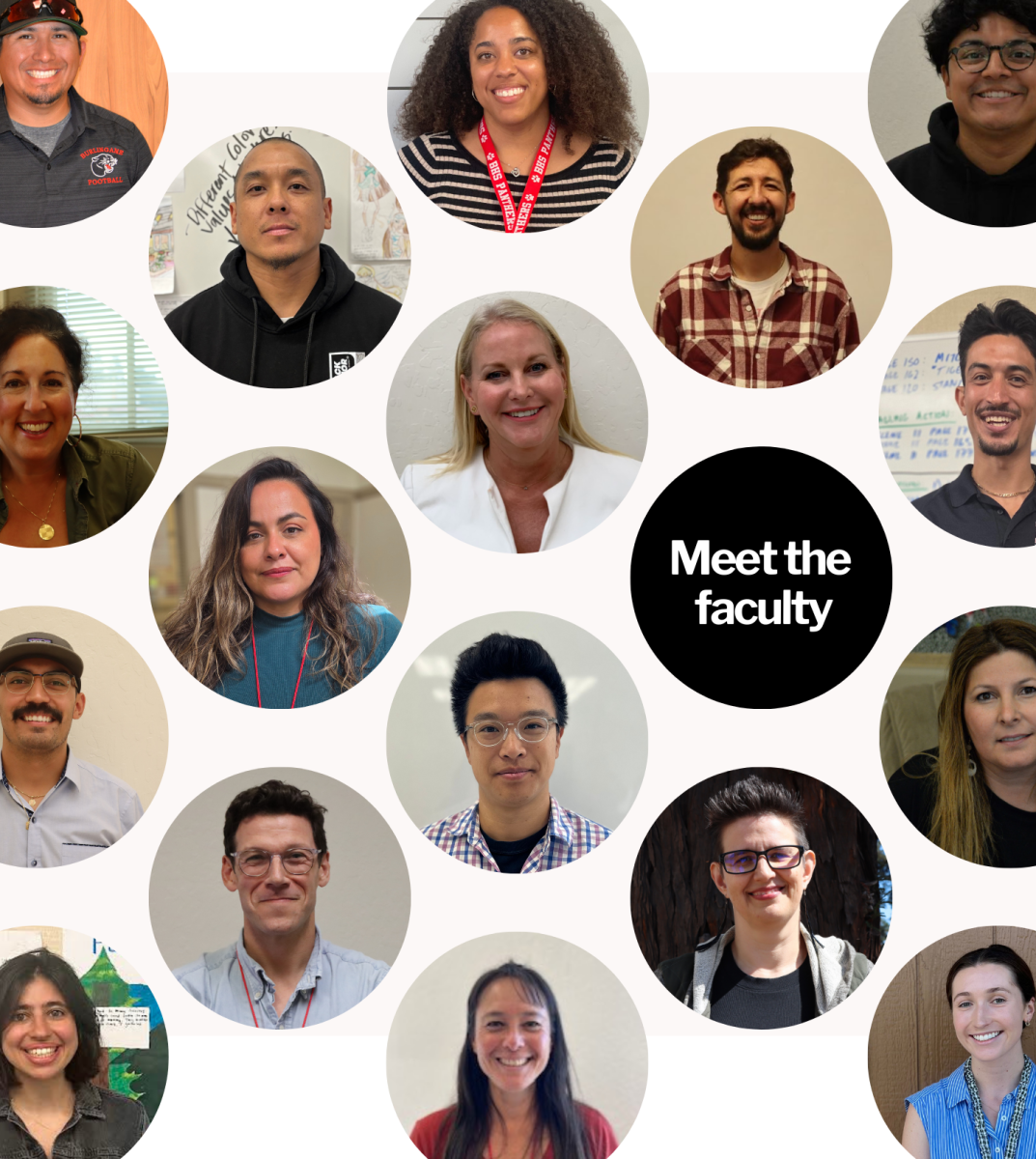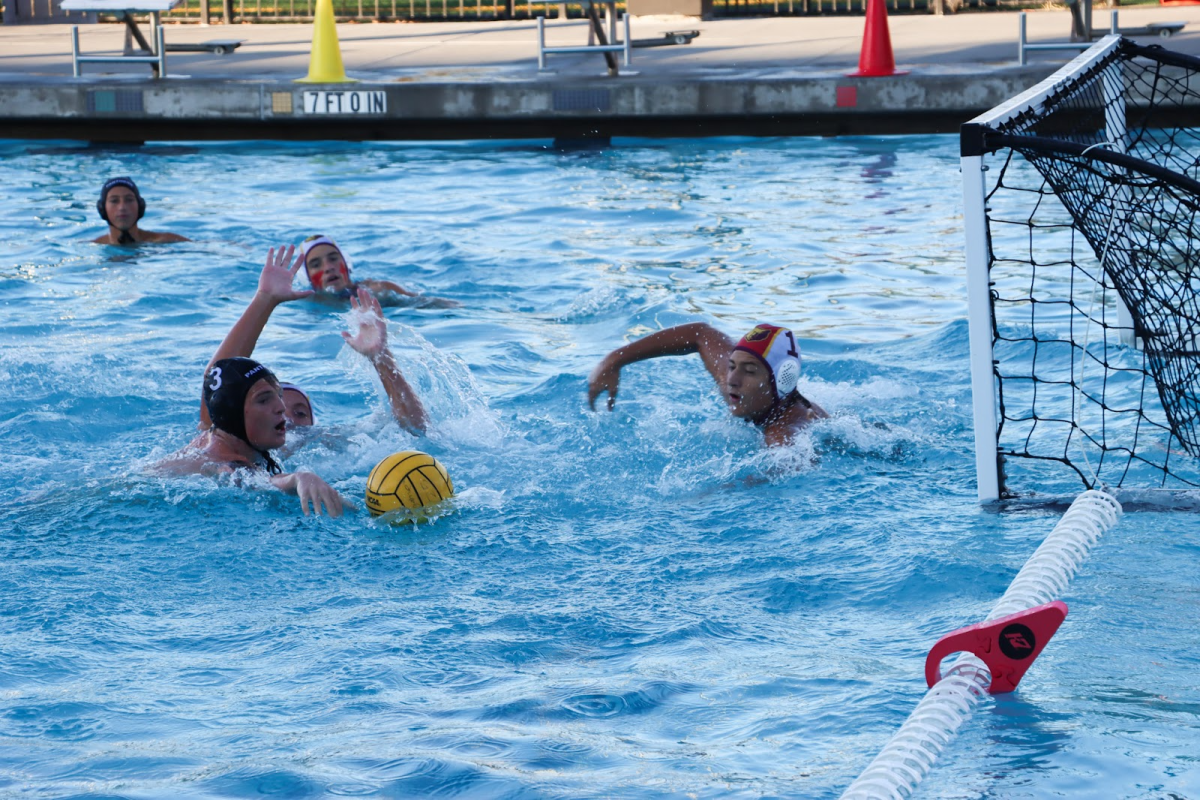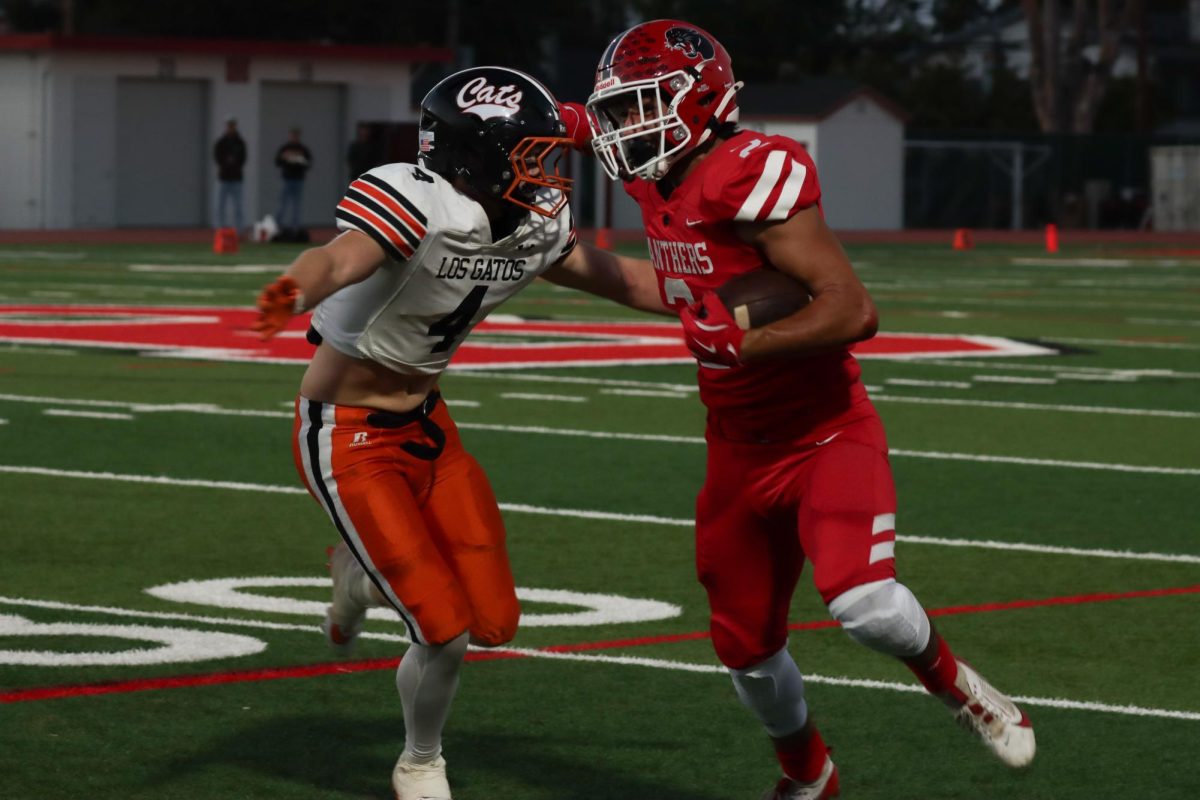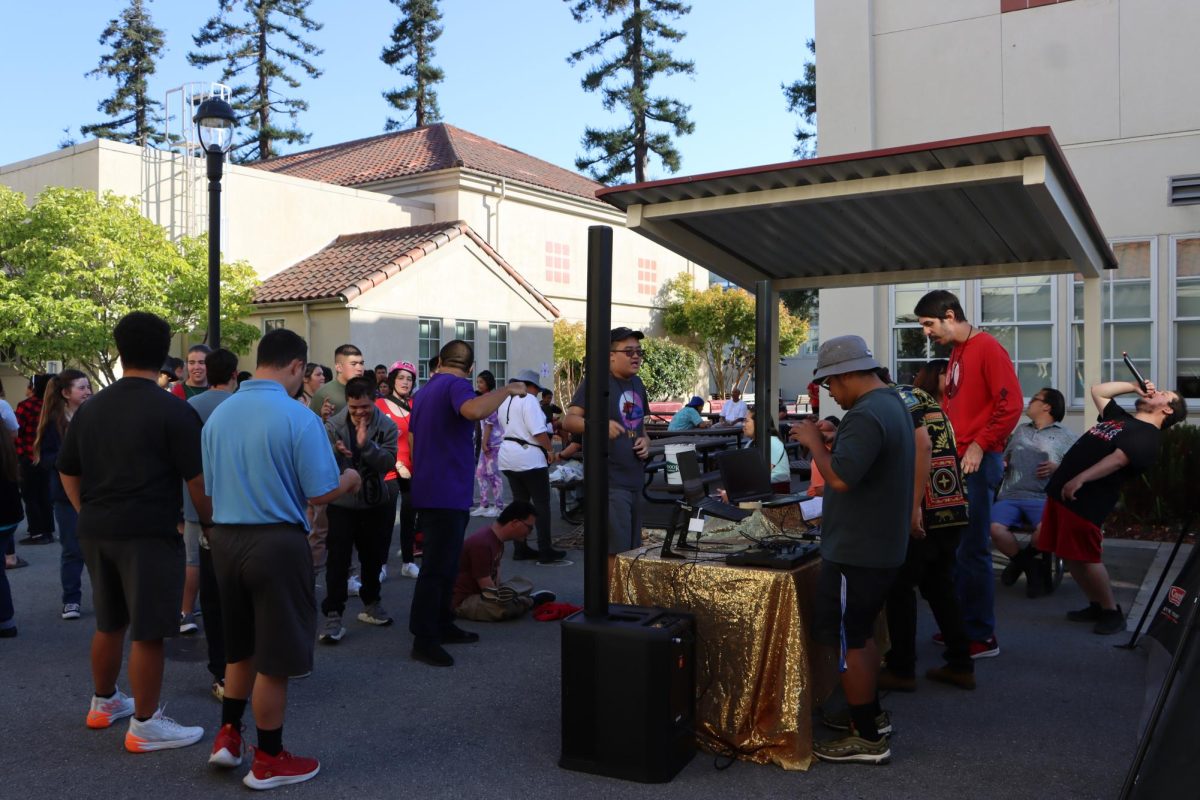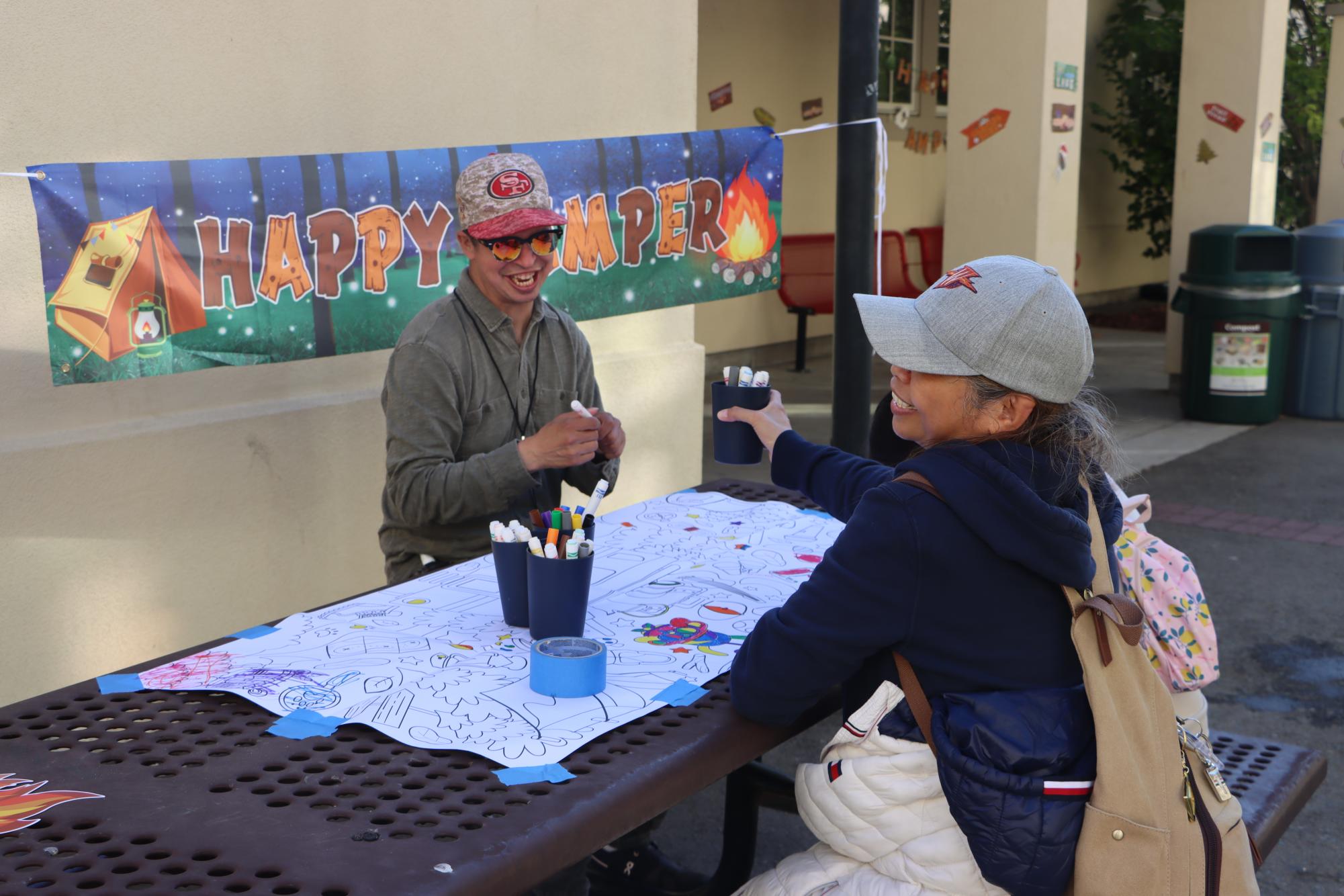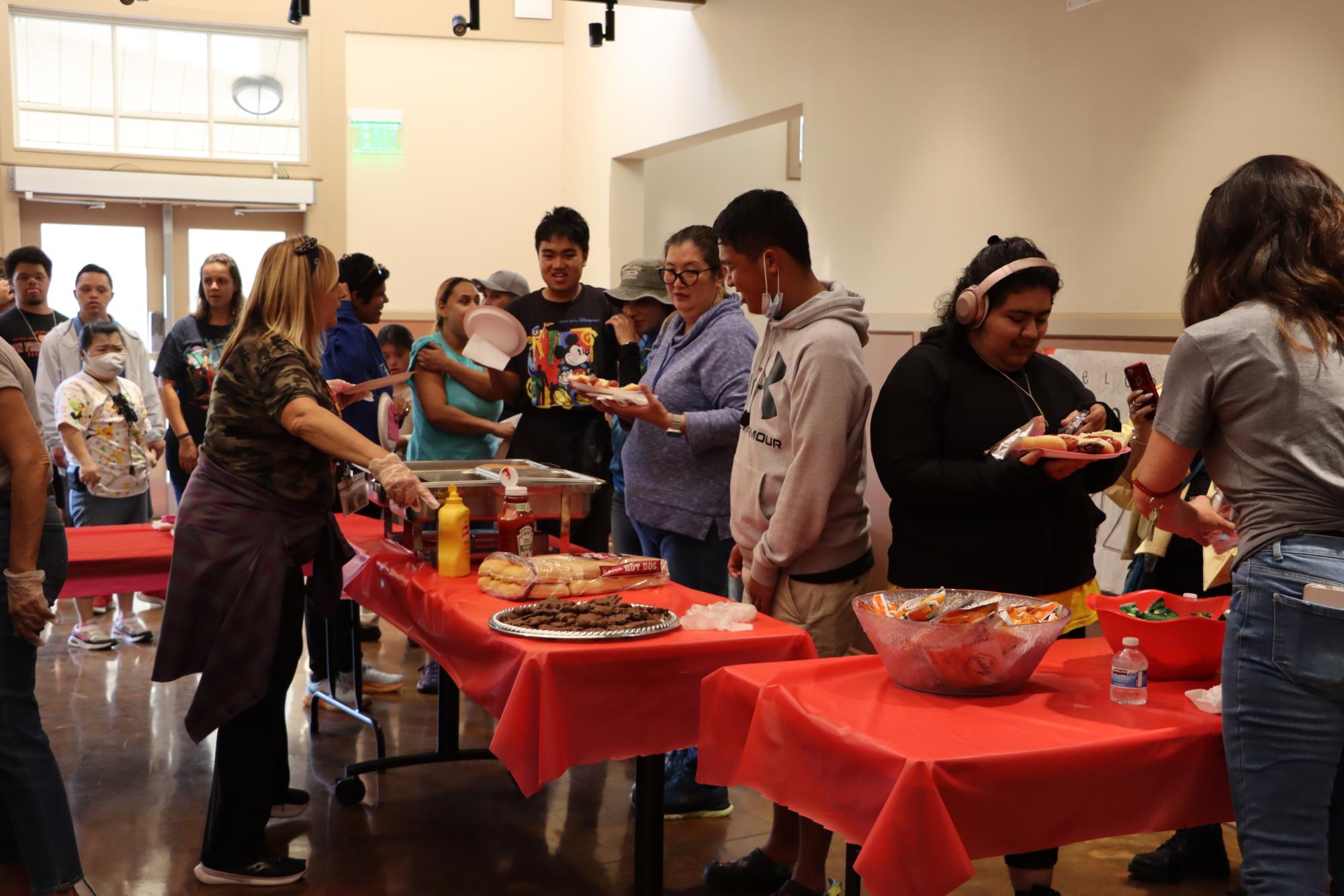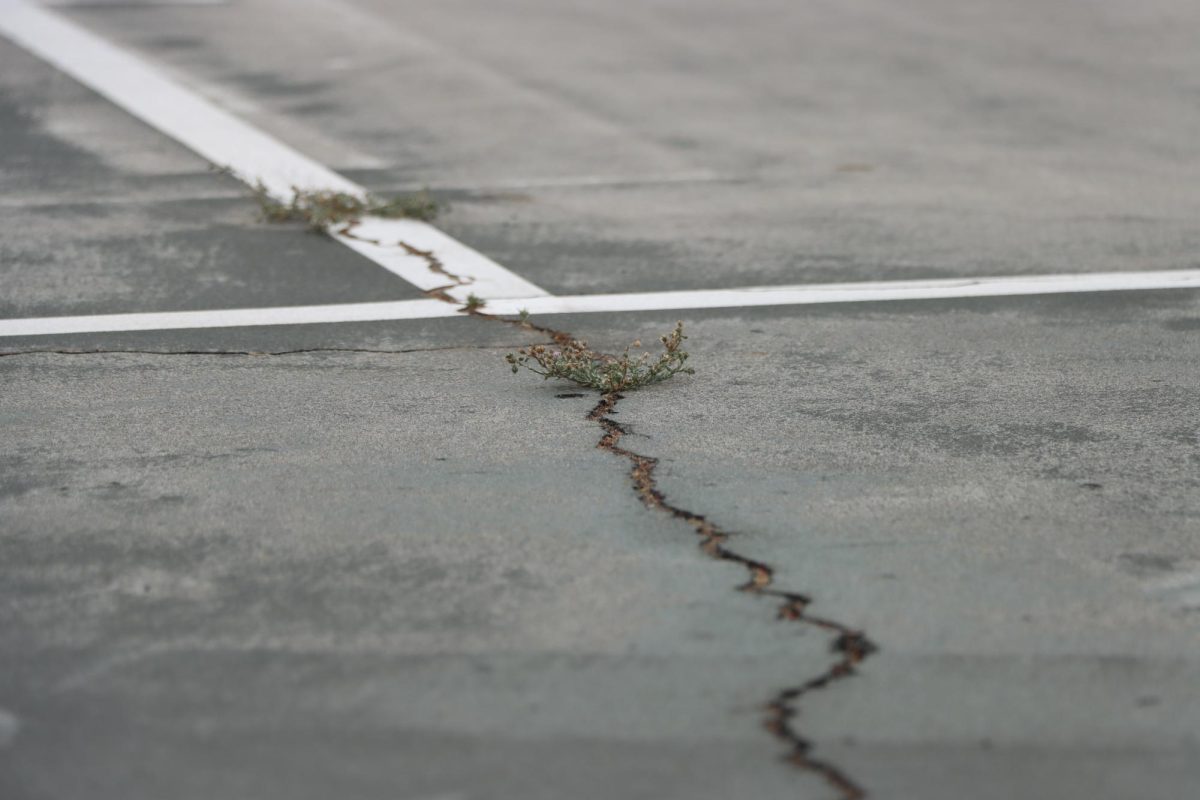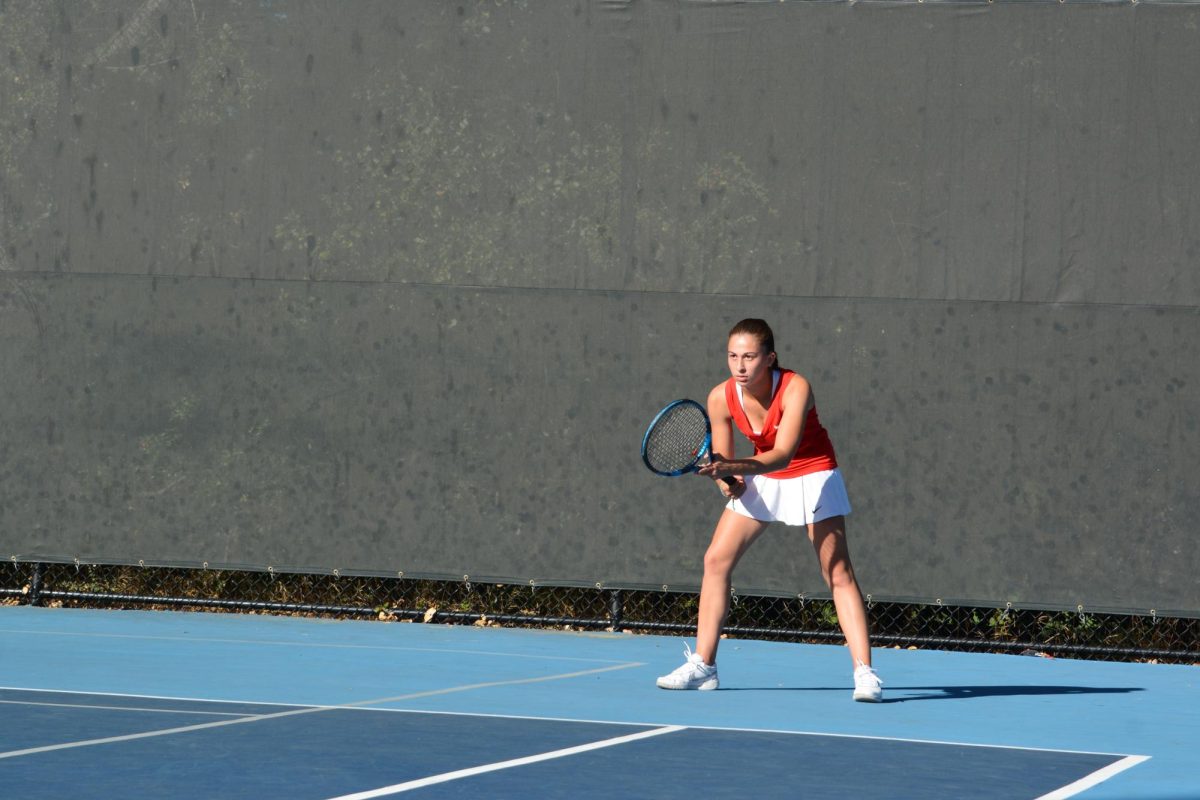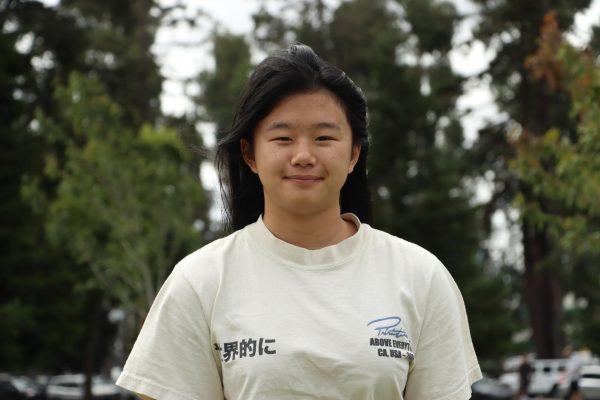On Friday, Sept. 15, Bay University — an adult transition program hosted at Burlingame for special education students — kicked off the year with a camping-themed dance behind the library.
Current and past Bay University students danced in the quad, colored in posters and made bracelets with the aid of volunteers from leadership. Decorations such as small origami campfires at picnic tables, tents on the dance floor and various decorative banners at the activity stations helped to complete the theme.
A unique part of Bay University dances is the inclusion of alumni, who are able to reconnect with teachers and bond with current students.
“We do four dances a year, and it’s not just for our current students,” said Bay University director Jenna Smith. “It’s for any kid that’s ever been a part of our program. We have an open door policy: Students and former students come and visit us all the time.”
Bay University’s open door policy is integral in making their dances a safe environment for everyone. For Steve Meyer this meant going beyond being an instructional aide in the classroom, it meant spending 10 to 12 hours before the dance filtering and finding appropriate music as a DJ.
“It’s hard. I won’t play Kanye, [or] R. Kelly,” Meyer said. “Those are things that some DJs don’t think about, especially when they come to a school setting. We have kids with disabilities, [so] if they said something wrong, these guys are hyper focused on [it]. Doing the right thing and having good mentors [is really important] so I want to provide that safe space [for them].”
Ultimately, Bay University’s main goal with their dances is to create a safe space for students to socialize and open up.
“[The dances] get them out of the house,” Meyer said. “We all go through trauma, especially when you get older. I lost my mom when I was 14. So I went through stuff as a youngster, but parents get sick, uncles die, cousins get hurt. So much drastic stuff happens in their lives. It gives them a place to be happy, share what’s going on in their lives, and let them know that we care.”
These regular events are ways Smith ensures everyone feels included and cared for.
“We want students to know that we’re not just paid to be in their life, that even after they graduate, we still want to see them, be a part of their lives, stay in touch and help them if they need help,” Smith said.
These dances help students and alumni socialize with peers and meet new people. For current students, it can be helpful and reassuring to see how willing and eager alumni are to stay involved in the program.
“The dances obviously inspire socialization,” Meyer said. “We are doing classwork a lot of the time we’re working, we’re doing things and these guys want to be friends with other people, including people who are older and younger; age doesn’t really matter to them.”
Bay University students not only get the opportunity to make friendships with past students, but they also get the opportunity to interact with the wider Burlingame community.
Take Michael An, a current Bay University student, for example.
“[I became friends with] Carly, a leadership student,” An said. “[It was] pretty good and interactive.”
An, along with many other students, found the dance really fun and enjoyed the experience.
Outside of their four annual dances, Bay University has many more plans to bring together its student population.
“In the past, we did participate in the Special Olympics, and then in the COVID world that kind of disappeared for a while,” Smith said. “So we’re hoping to start that back up as well.”
Along with reviving old events, Smith will also be hosting a bowling activity this year, using funds raised by Bay University Sports, a nonprofit run by Burlingame students.
“We wanted to find something that was a sport that all of our students could do,” Smith said. “That way we were sort of honoring the fact that it was the [sports organization] that raised the money. And so with bowling, they can do bumpers, they have ramps, so even students in wheelchairs can participate. So it’s just more about the inclusivity and the fact that it’s a sport. Overall, it’s also a really fun event for the kids.”


